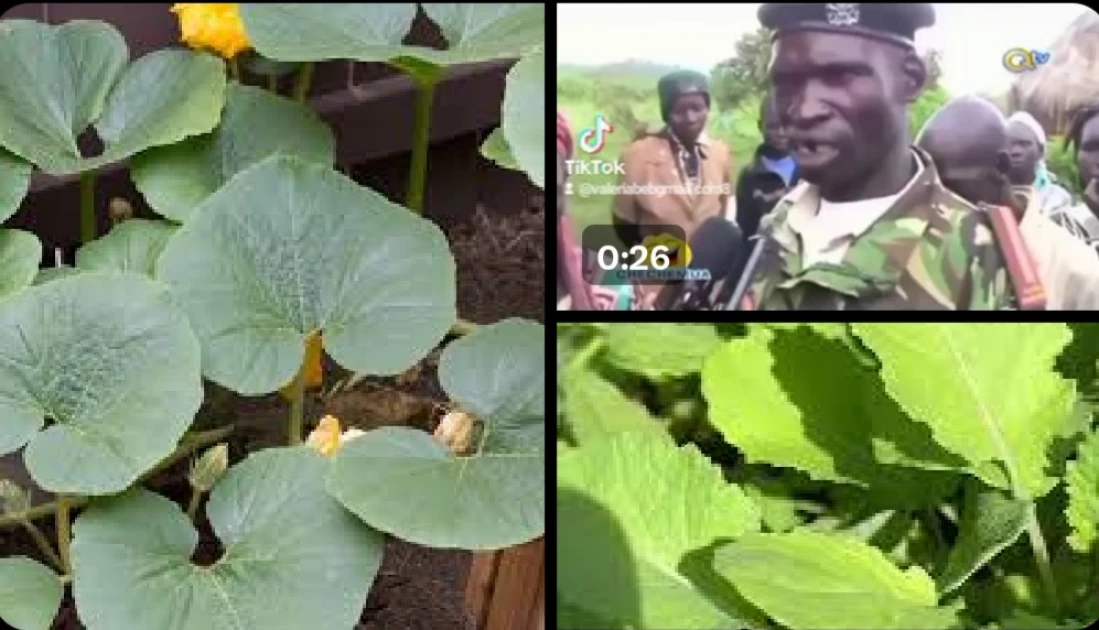
Misheveve: How a Chief’s Hilarious Crime Narration Turned a Vegetable into a Viral Sensation.


There’s a new word on everyone’s lips, and Kenyans are scrambling to figure out where it came from. Over the past few days, ‘Misheveve’ has taken the internet by storm, turning into one of the most viral terms as people try to decode its meaning. While many are genuinely curious, others have jumped straight into meme creation, resulting in a flood of hilarious content.
At first glance, ‘Misheveve’ might seem like a complex English word, but it’s actually a Luhya term. Over the weekend, this seemingly ordinary word exploded online, sparking an unexpected cultural phenomenon. But where did it all begin?
It all started when Protus Wechuli Sifuna, a chief from Saboti in Trans Nzoia County, recounted an unusual crime during a news interview. The story involved a domestic dispute, where a disgruntled son attacked his father after expressing disappointment over the dinner his mother had prepared. What was on the menu? Misheveve.
In his animated retelling, the chief casually dropped the word without knowing it would ignite an online frenzy. He described the moment the son asked, “Mama, umepika mboga gani leo?” to which the mother replied, “Nimeunda misheveve.”
Unhappy with the response, the son exclaimed, “Sitaki misheveve, nataka sarati!” What followed was a bizarre turn of events, with the son attacking his father, biting his fingers as though they were omena (sardines).
Once the clip surfaced online, Kenyans latched onto the word misheveve and began using it in everyday conversations. While some were puzzled by the meaning, others wasted no time in coming up with their own comedic interpretations of when misheveve might be used.
Quickly, language enthusiasts stepped in to clarify that misheveve refers to pumpkin leaves—a common vegetable in Western Kenya and parts of Africa. But as the jokes rolled in, the focus shifted from its meaning to the real question: why did the son hate misheveve so much?
One user humorously asked, “How bad can misheveve be that someone would be willing to attack their father just to avoid eating it?”
Across social media platforms, particularly on X (formerly Twitter), Kenyans began replacing their usual phrases with misheveve for comedic effect. One popular phrase, “Weka za Kabej” (asking for money), morphed into “Weka za Misheveve,” with hilarious results.
Other clever quips soon followed:
“Leo nimepika misheveve. Cool kid akikuja huku atadhani naperform rituals.”
“Unapikia dem yako ugali na misheveve alafu unashangaa mbona huoni DP yake kesho asubuhi.”
Even drunkards got in on the fun: “Kabla ya kuingia club, foundation ni ya misheveve!”
As the internet buzz continued, enterprising musicians jumped on the trend, releasing songs about misheveve, and someone even suggested a genius marketing idea: “Kenyan restaurants should introduce Misheveve Fridays—complete with soda and kachumbari!”
While the internet laughs, it’s worth noting that pumpkin leaves, or misheveve, are actually quite nutritious. They’re packed with essential minerals like potassium, which supports everything from muscle function to heart health. Who knew a humble vegetable could cause such a stir?
As misheveve continues to dominate conversations, one thing’s for sure—Kenyans have found a way to turn even the most unlikely of words into pure comedy gold.
Who knew pumpkin leaves could go viral?
Article By Suzy Nyongesa.
